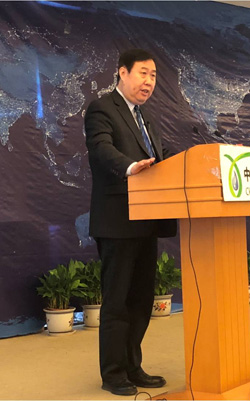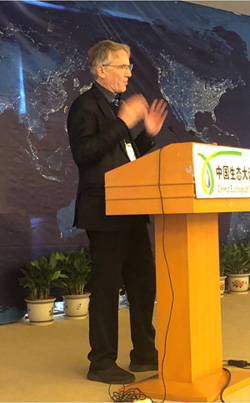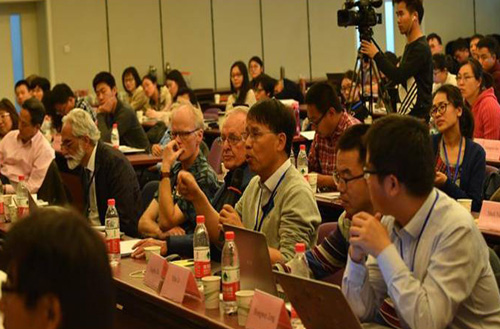The International Workshop of the Global Dryland Ecosystem Programme (Global-DEP) was successfully held on 21-22 October, 2018, in Beijing. The workshop was co-chaired by Prof. FU Bojie from the Chinese Academy of Sciences (CAS) and Dr. Mark Stafford Smith from the Commonwealth Scientific and Industrial Research Organization (CSIRO), Australia.
Over thirty Chinese members of Global-DEP work groups and ninety researchers and graduate students from different research institutes and universities participated in this workshop.
In the opening ceremony, Prof. FU Bojie pointed out several key facts: drylands cover 41% of the world’s land surface, produce 44% of its crops and provide livelihoods for over 250 million people; one of third of the world’s biodiversity hotspots exist in drylands and drylands also provide habitats for 28% of endangered species; however, some 10 to 20% of the earth’s drylands are facing degradation.
Prof. Fu emphasized the significance of scientific research on dryland ecosystems. He noted that China was among the first countries to conduct research in order to manage drylands and degraded lands, and has gained rich experience to take a lead in this field.
Afterwards, Prof. Fu and Dr. Mark Stafford Smith, in their capacity as co-chairs of Global-DEP Interim Scientific Committee, each delivered keynote presentations that elaborated the aims, main tasks, and implementation framework of Global-DEP and discussed how to enhance dryland ecosystem management from the perspective of Future Earth.
 |
 |
| FU Bojie and Mark Stafford Smith made keynote speeches(Image byIGSNRR) |
In a series of thematic presentations, seventeen speakers from China, the US, Australia, Greece, Senegal, Japan, and Switzerland shared their progress, important results and experiences in drylands research. The presentations considered a range of issues, including ecosystem dynamics and driving mechanisms, ecosystem structure and functions, ecosystem services and human well-being, and ecosystem management and sustainable livelihoods in global drylands.
Some major case studies from around the world were presented to workshop participants. These included a study that modeled the trade-off between environment restoration and human water consumption in Ebinur Lake in China, a long term experiment on semi-arid ecosystem sensitivity to precipitation extremes in middle parts of the US, a study of sustainable land management in Ethiopia, an investigation of the evolution of value, science and technology in China’s Heihe River basin, and a multi-scale analysis of ecosystem services in the Loess Plateau in China.
These presentations led to a spirited discussion among the participants concerning the importance of ecosystem management, the complexity of social and ecological systems, and the challenges that must be addressed to achieve sustainable development goals in dryland regions.
The workshop was jointly convened by four CAS institutes—the Research Center for Eco-Environmental Sciences (RCEES), the Institute of Geographic Sciences and Natural Resources Research (IGSNRR), the Institute of Remote Sensing and Digital Earth (RADI), and the University of the Chinese Academy of Sciences (UCAS)—and the Higher Education Press.
 |
|
Q&A during the workshop(Image byIGSNRR) |
The establishment of Global-DEP, proposed by Prof. FU Bojie and Dr. Mark Stafford Smith, was formally approved as a key international cooperation project by the International Cooperation Bureau of CAS in August, 2017.
Its scientific goal is to provide a platform for global research collaboration on dryland ecosystems and its Science Plan defines key scientific issues and priority areas for future research.